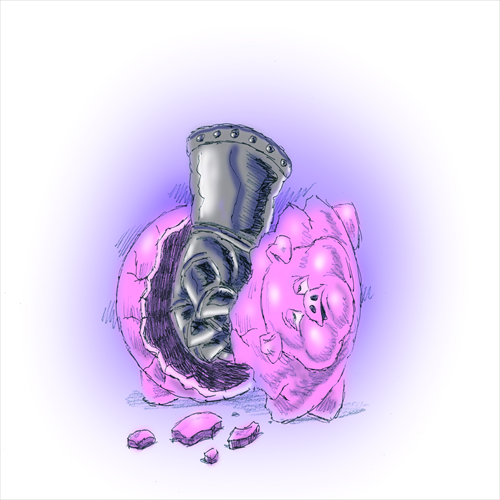UK economic decline is Thatcher’s most lasting legacy

The first thing to be said about the death of Margaret Thatcher, the former British prime minister between 1979 and 1990, is to express condolences to her family for their personal loss. She has a permanent historical place as the UK's first woman prime minister. But purely human feelings must be separated from judgment of a political figure.
The objective judgment must be that Thatcher is largely responsible for the present deep economic problems of the UK due to destruction of British industry and embarking on a path of massive debt accumulation. She attacked the weak in UK society and internationally. When she encountered a strong force, China led by Deng Xiaoping, over Hong Kong, she was defeated.
As Hong Kong was Thatcher's most direct interaction with China, it is worth starting with this and it also summarizes her wider career.
Thatcher was contemptuous of China. As a senior civil servant revealed, she privately said China was "unpleasant." On her visit to China in September 1982 to negotiate on Hong Kong, she did not take the then UK foreign secretary Francis Pym as he was considered insufficiently hard-line. The British foreign ministry had given the correct judgment that Britain had not even a tenuous legal right to stay in most of Hong Kong's territory after 1997 and no practical ability to do so.
Despite this, Thatcher's proposal was that Britain be allowed to continue to administer Hong Kong. Her meeting with Deng to present this proposal was dramatized on British TV. Deng replied that if he agreed to let Britain stay in Hong Kong beyond 1997 he would be no better than the traitors of the Qing Dynasty (1644-1911) who had given up Chinese soil to Britain under unfair treaties. China would not negotiate on its unconditional sovereignty over Hong Kong, but only discuss mechanisms by which Britain would transfer sovereignty. If the latter negotiations were not concluded within two years, China would impose transition arrangements.
Confronted with China's stance, Thatcher's bluff collapsed, eventually agreeing to 100 percent of Deng's position.
Although Hong Kong was China's most direct clash with Thatcher, the episode summed up her failure to realistically judge the long-term consequences of policies. Domestically, as her approach largely shaped UK economic policy up to the financial collapse of 2008, she was the ultimate architect of the present crisis of the UK economy.
Thatcher's policy as prime minister was to allow UK industry to begin a decline from which it has never recovered. North Sea oil revenues were not productively invested. A buildup of private and state debt began while saving fell. It was like someone on a credit card spending spree. They feel great while bingeing, but the day of debt reckoning eventually comes.
The proof of the pudding was the eating. UK industry was allowed to decline but UK banking, fuelled by debt, in the short term naturally gave the appearance of thriving. As debt accumulation became unsustainable, in 2008 came the greatest banking collapse in UK history. The resulting UK recession may be longer than the depression of the 1930s.
Thatcher's death is a personal tragedy for her family and friends, but not a political loss for the UK.
The author is a senior fellow with the Chongyang Institute for Financial studies, Renmin University of China. opinion@globaltimes.com.cn
Counter point: Iron lady pioneered pragmatic approach to China’s changes